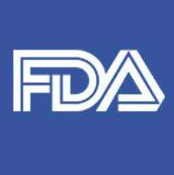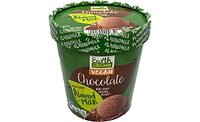FDA: Avoid Frozen Desserts and Drinks Made with Liquid Nitrogen

The U.S. Food and Drug Administration (FDA) is telling consumers and retailers to avoid eating, selling, or handling food products that are prepared by adding liquid nitrogen at the point of sale, immediately before consumption. The products FDA has named include Dragon’s Breath, Heaven’s Breath, and nitro puff, but there are others as well.
According to Wikipedia, these products are frozen desserts made from cereal dipped in liquid nitrogen. When placed inside the mouth, it creates vapors that emit from the mouth and nose.
FDA says that while liquid nitrogen is nontoxic, it can cause severe damage to the skin and internal organs if mishandled or accidently ingested due to the extremely low temperatures it can maintain. There is also the risk of breathing problems, which may be especially problematic for those that suffer from asthma.
These foods and drinks are commonly found in malls, food courts, kiosks, state or local fairs, and other food retail locations. These products may include liquid nitrogen-infused colorful cereal or cheese puffs that emit a misty or smoke-like vapor. Similarly, alcoholic and nonalcoholic drinks prepared with liquid nitrogen emit a fog.
The FDA has become aware of severe -- and in some cases, life-threatening -- injuries, such as damage to skin and internal organs caused by liquid nitrogen still present in the food or drink. There has also been a report of difficulty breathing after inhaling the vapor released by liquid nitrogen when added immediately before consumption. Injuries have occurred from handling or eating products prepared by adding liquid nitrogen immediately before consumption, even after the liquid nitrogen has fully evaporated due to the extremely low temperature of the food.
In general, other foods treated with liquid nitrogen prior to the point of sale and before consumption, for example some frozen confections, are treated in such a way that results in the complete evaporation of liquid nitrogen before reaching the consumer and are no longer at an extremely low temperature, and therefore do not pose a significant risk of injury.
Sign up for Food Safety Magazine’s bi-weekly emails!
Subscribe to our podcast: Food Safety Matters!
Looking for a reprint of this article?
From high-res PDFs to custom plaques, order your copy today!





